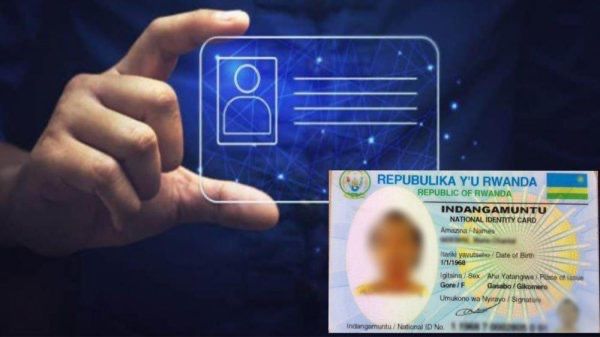The Ministry of ICT and Innovation has announced that the Smart National ID Project will cost around $70 million (over 101 billion Rwandan francs) once completed.
The project began in 2023.
Minister of ICT and Innovation, Paula Ingabire, stated that the World Bank, as the primary partner, contributed more than $48 million (about 69 billion Frw) to build the digital ID system.
She emphasized that this amount is not sufficient “to achieve what we aim to do now,” explaining that over $70 million (around 101 billion Frw) is required to complete the entire project.
In an interview with RBA, she said:
“The reason is that we are building a system and upgrading existing services provided to citizens who rely on the national ID, so they can now use the digital ID. There’s also the need for equipment that will help people access services using the digital ID.”
Rwanda continues to attract various donors supporting this initiative, while the government itself is also contributing to ensure the project’s completion.
For the 2024/2025 fiscal year, the project was allocated 5,397,688,170 Frw, and for 2025/2026, the allocation rose to 12,265,253,074 Frw.
The national ID, which was previously issued to Rwandans aged 16 and above, as well as foreigners residing in Rwanda and refugees, will now also be issued to a wider range of people — including Rwandans, foreign residents, refugees, asylum seekers, abandoned children, temporary foreign visitors (for those needing services), migrants, and stateless persons living in Rwanda.
Minister Ingabire explained:
“We already had these people in our records, but since some didn’t have identification, many basic services available to Rwandans or foreigners in Rwanda couldn’t reach them. This new system will simplify access to services because the digital ID will contain all your information — you’ll even be able to open a bank account without physically going there.”
The digital ID will come in three forms:
1. A physical card, as before;
2. A QR code version for use on mobile phones or computers;
3. A ‘token’ number that can be used to access one’s data, different from the traditional ID number.
Unlike before, it will no longer be necessary to carry the physical ID when seeking services.
The National Identification Agency (NIDA) recently announced that over 3,300 people have already registered on the “pre-enrollment platform” — a system for verifying and correcting personal information in preparation for the digital ID rollout.
This pre-enrollment phase was officially launched on August 7, 2025, during the Kigali International Trade Fair, and continued at Itorero Indangamirwa.
The program will now expand nationwide, starting in the Southern Province (Huye, Gisagara, and Nyanza districts), where residents will be assisted in correcting their personal data and providing biometric information.
Each sector (umurenge) will have two registration sites, staffed by well-trained personnel to minimize errors.
Biometric data to be collected includes iris scans, fingerprints of all fingers, and facial images. Every Rwandan and eligible foreign resident will receive a digital ID.
For children from birth to age five, the ID will contain only a photo, since biometric features change as they grow. From age five and above, full biometric data will be collected.
Over 1,144 trainees have completed the necessary training to assist citizens with data correction and biometric collection.
These trained personnel will begin assisting residents from October 28, 2025, through December 2025. By May 2025, the number of trained workers is expected to reach 2,500.
Minister Ingabire added:
“By December, we’ll have covered nine districts, and the remaining 21 will be completed next year by May 2025. This means we must train many more staff to ensure we reach all remaining districts and finish collecting people’s data across the entire country by May 2025.”
Previously, 27 data categories were collected for each ID, but this has been reduced to nine to make the process more efficient while ensuring a complete personal profile.
The data will include: names, parents’ names, email and phone number (if available), place of residence, place of birth, and other key identifiers.
By May 2025, Rwanda is expected to become the first country in Africa to have a fully operational digital national ID system within the planned timeframe — even ahead of other nations that began similar projects earlier.





